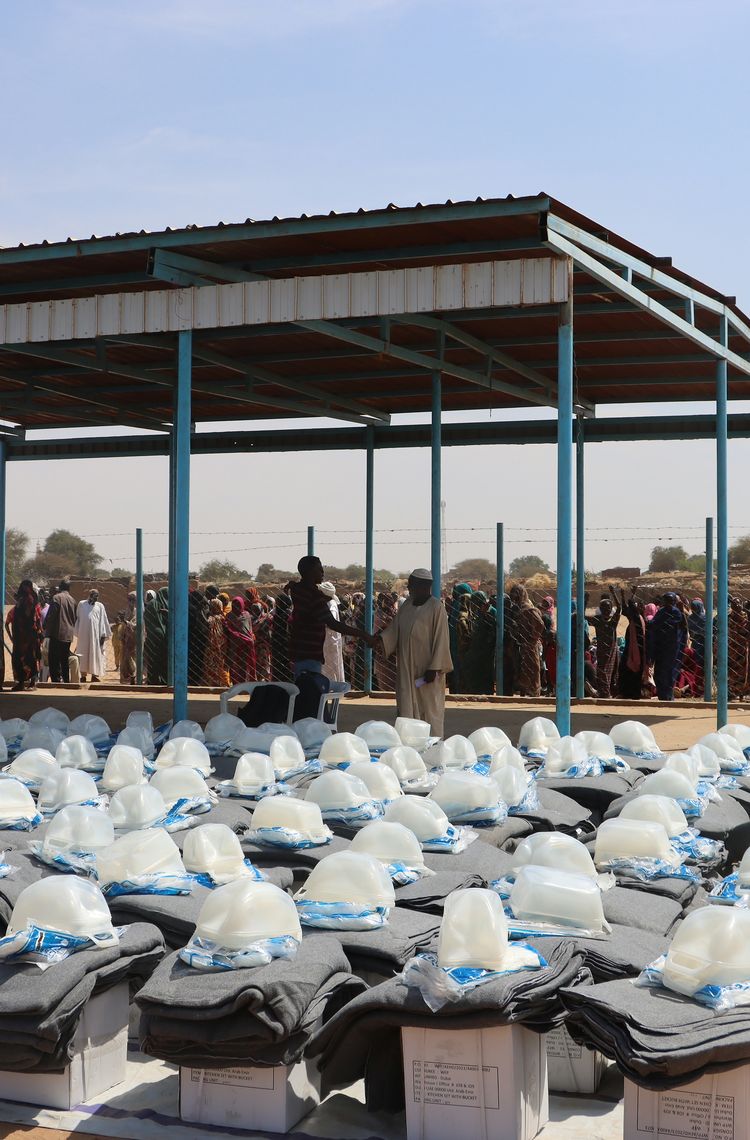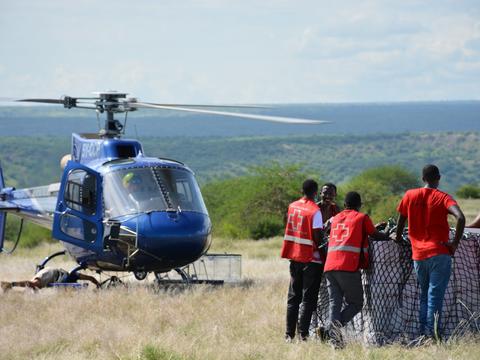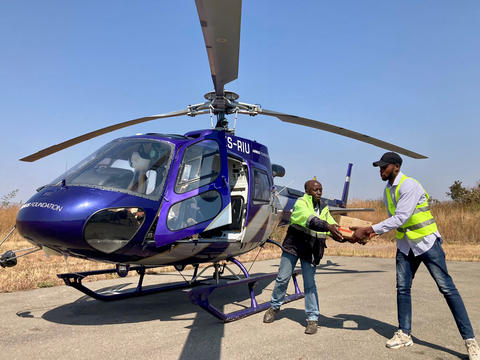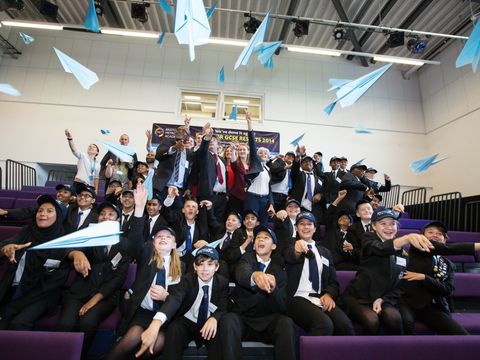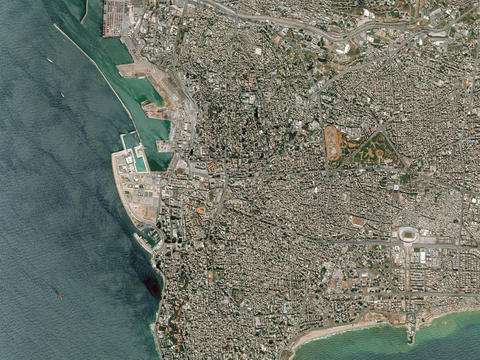The humanitarian sector is facing unprecedented challenges. With a growing number of emergency and protracted crises, coupled with a drastic drop in global funding in 2025, the humanitarian aid community is grappling with how to maximise its resources to continue reaching those most in need.
In this critical landscape, strategic partnerships, prioritising flexibility and agility, are not just beneficial, they are essential. The aviation industry, with its inherent logistical capabilities, is uniquely positioned to play a vital role in this response, and a new partnership between the Airbus Foundation and Airlink demonstrates the power of collaboration.
In December 2024, the Airbus Foundation signed a partnership with Airlink, including a funding commitment of €7.5 million over four years. This significant pledge highlights the power of the aviation industry to act as a force for good, building capacity and pulling together for the benefit of communities facing extreme hardship.
Delivering aid hinges on managing complex logistics, often involving navigating treacherous terrain, floodwaters, or conflict zones to reach isolated communities. Aircraft and helicopters are indispensable in enabling international agencies and non-government organisations to deliver vital supplies like survival equipment, food, medicines, and medical personnel to where they are needed most. Sometimes, there simply isn't an alternative.
While emergency situations still gather crucial support, protracted crises suffer most from the reduction in funding. For more than a decade, around 90% of crises requiring humanitarian intervention are protracted in nature. Recovery can take months or even years, requiring sustained and agile support. For example, communities which have been displaced due to ongoing conflict often also face public health emergencies and disease outbreaks, compounded by the fact that informal settlements have limited or negligible access to public services and healthcare. Partners in the humanitarian sector are looking for a reliable way to plan logistics for the long run.
With complex, long-running situations to navigate, and the international aid community facing an estimated 40% drop in funding in 2025, there is a critical need for more strategic and agile approaches to ensure continuous support over the longer term. This partnership will help us extend the support we already give by offering a reliable additional solution that mobilises the aviation sector.
Expanding our collective reach
Airlink, a Washington D.C.-based non-profit, has a partnership network of over 50 commercial and cargo airlines. This collaboration significantly expands the Airbus Foundation and Airlink's collective reach, enabling support for a larger number of humanitarian organisations and impacted communities worldwide.
One of Airlink's core strengths lies in its flexibility.
Through its extensive network, Airlink can secure charters, part charters, and shuttles, offering greater adaptability in the volume and frequency of aid deliveries. For cargo, Airlink often secures hold space for free, or at a discount. An Airlink partner, like the Airbus Foundation, might cover the remaining discounted cost. This innovative model results in a more flexible approach and provides greater capacity to respond to different crises.
The ability to send lower cargo loads is particularly beneficial for addressing protracted crises, and the reduced transportation costs allow more funding to be deployed in other vital areas of humanitarian response. Furthermore, Airlink facilitates the rapid mobilisation of personnel by securing tickets on flights at short notice, often through donations from its partner airlines.
Aviation as a force for good
In the six months since its inception, this collaboration has already achieved tangible results, with five joint missions undertaken to critical regions like Sudan, Chad, and Myanmar. For instance, in January 2025, the Foundation supported an Airlink humanitarian alliance to transport essential aid for 1,500 households, with distribution focused on internally displaced populations across camps in North Darfur. In March 2025, responding to the devastating earthquake in Myanmar, the partnership came together to support the International Federation of Red Cross and Red Crescent Societies (IFRC) to transport 51 tonnes of emergency supplies including shelter repair kits, solar lamps and mosquito nets to affected communities. This contribution was particularly impactful as the ongoing civil war in Myanmar exacerbated the difficulty of humanitarian relief efforts. With conflicts ongoing in many parts of the world and hurricane season beginning again, there will be more missions to come.
These efforts complement the Airbus Foundation's broader humanitarian work, which in 2024, included 9 humanitarian flights and 244 helicopter hours to deliver 227 tonnes of essential aid to hard-to-reach communities in locations such as Burkina Faso, delivering vital supplies like ready-to-use therapeutic food for combating malnutrition.
But this collaboration is about more than headline figures of tonnes of aid delivered or number of flights chartered. It sends a powerful signal to the wider aviation community that aviation can and does act as a force for good and that this kind of flexible, agile partnership is the way forward to help address the evolving complexities of global humanitarian crises.
Airbus Foundation latest news
Continue Reading

The last stand of the Ethiopian wolf
Web Story
Airbus Foundation
Find out how Airbus satellites and local partnerships are driving conservation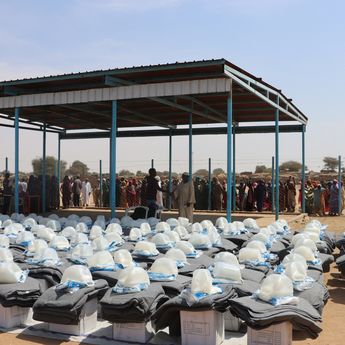
How aviation partnerships are strengthening humanitarian logistics
Web Story
Airbus Foundation
2024: The Airbus Foundation’s year in review
Web Story
Airbus Foundation

Saving the giant pangolins of Nyakweri Forest
Web Story
Airbus Foundation

Airbus Foundation and Solar Impulse Foundation launch call for projects
Web Story
Sustainability
